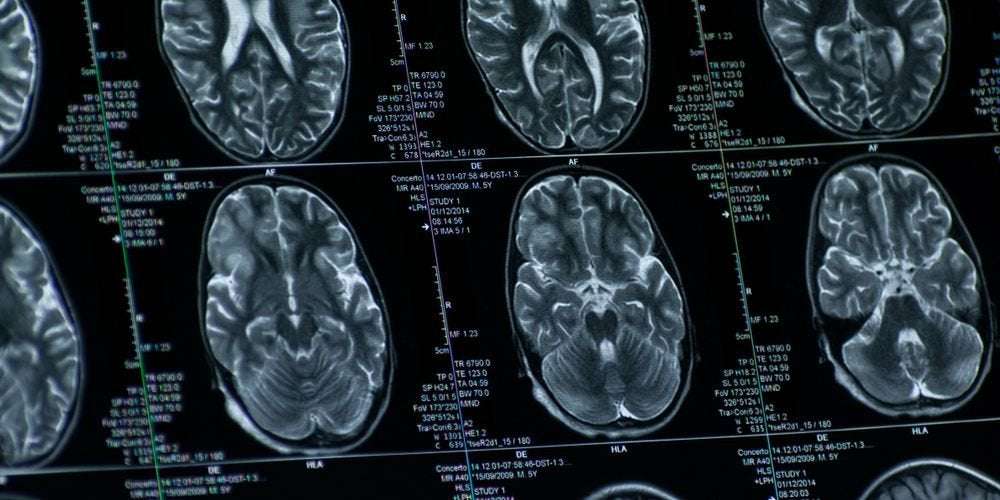Oxytocin, often dubbed the ‘love hormone’, is known to promote social bonding. Researchers at KU Leuven have now discovered that administering oxytocin to adult men with autism makes them more open to close emotional bonds with others. The hormone has positive long-term effects as well.
A team led by Professor Kaat Alaerts (KU Leuven) recruited 40 adult men with autism spectrum disorder to take part in their study.
“In a first stage, we examined the amount of oxytocin produced by the participants themselves. The subjects also filled out several questionnaires,” Professor Alaerts explains. “An analysis of the data revealed that the amount of oxytocin found in the subjects’ saliva was inversely related to their self-reported attachment issues.”
The amount of oxytocin found in the subjects’ saliva was inversely related to their self-reported attachment issues.
In a second stage of the research, the team examined the long-term effects of administering oxytocin through a nasal spray. This experiment produced remarkable results: the participants who had been given oxytocin for four weeks experienced positive effects until up to a year later.
“We divided the 40 participants into an experimental group and a control group. The control group received a placebo for four weeks,” says doctoral student Sylvie Bernaerts, who is the first author of the study in Molecular Autism.
“Over the course of a full year, we also asked the participants to fill out questionnaires on four different occasions. These questionnaires were used to examine the impact of the oxytocin-containing nasal spray on the symptoms of autism.”
In terms of social interaction, the researchers found no difference between the experimental group and the control group. But for repetitive behaviour (including the need for routines) and attachment, the results were significant: “The people in the experimental group reported far less repetitive behaviour and also reported fewer problems with forming close relationships.”
The participants who had been given oxytocin for four weeks experienced positive effects until up to a year later.
This study shows for the first time what the long-term effects are of repeatedly administering oxytocin to people with autism. Professor Alaerts: “Participants who took oxytocin every day for four weeks experienced positive effects until up to a year later. That’s a remarkable result.”
For this study, the researchers only selected male participants. This was partly because autism is more prevalent in men, and women’s hormonal cycle may influence the test results. Furthermore, oxytocin is already being used to induce labour or breastfeeding in pregnant women or women who have recently given birth, respectively. In other words, there are more factors to take into account in female test subjects.
And what about using oxytocin as a treatment? “As oxytocin is already being used in medicine, you might think that we can start using it quite soon to address attachment issues or to reduce repetitive behaviour in people with autism,” says Professor Alaerts. But she is quick to temper expectations: “The findings we’re presenting today are the result of a first pilot study. A lot of further research needs to be done before oxytocin can be used to treat people with autism.”

armosnacht on January 26th, 2020 at 20:10 UTC »
Was literally looking this up last night because I am so socially withdrawn and disconnected thanks to PTSD. However, I read that it’s possibly a double-edged sword, in that it increases “tribal” thinking. You’ll feel closer to those you are already close to, but possibly even more distrusting of those you don’t know. Which I mean, with PTSD that’s pretty damn significant and makes me a tad weary.
consemillawerx on January 26th, 2020 at 19:24 UTC »
Petting a dog releases oxytocin in humans.
Wagamaga on January 26th, 2020 at 17:12 UTC »
Oxytocin, often dubbed the ‘love hormone’, is known to promote social bonding. Researchers at KU Leuven have now discovered that administering oxytocin to adult men with autism makes them more open to close emotional bonds with others. The hormone has positive long-term effects as well.
A team led by Professor Kaat Alaerts (KU Leuven) recruited 40 adult men with autism spectrum disorder to take part in their study.
“In a first stage, we examined the amount of oxytocin produced by the participants themselves. The subjects also filled out several questionnaires,” Professor Alaerts explains. “An analysis of the data revealed that the amount of oxytocin found in the subjects’ saliva was inversely related to their self-reported attachment issues.”
In a second stage of the research, the team examined the long-term effects of administering oxytocin through a nasal spray. This experiment produced remarkable results: the participants who had been given oxytocin for four weeks experienced positive effects until up to a year later.
Less repetition, more attachment “We divided the 40 participants into an experimental group and a control group. The control group received a placebo for four weeks,” says doctoral student Sylvie Bernaerts, who is the first author of the study in Molecular Autism.
https://molecularautism.biomedcentral.com/articles/10.1186/s13229-020-0313-1